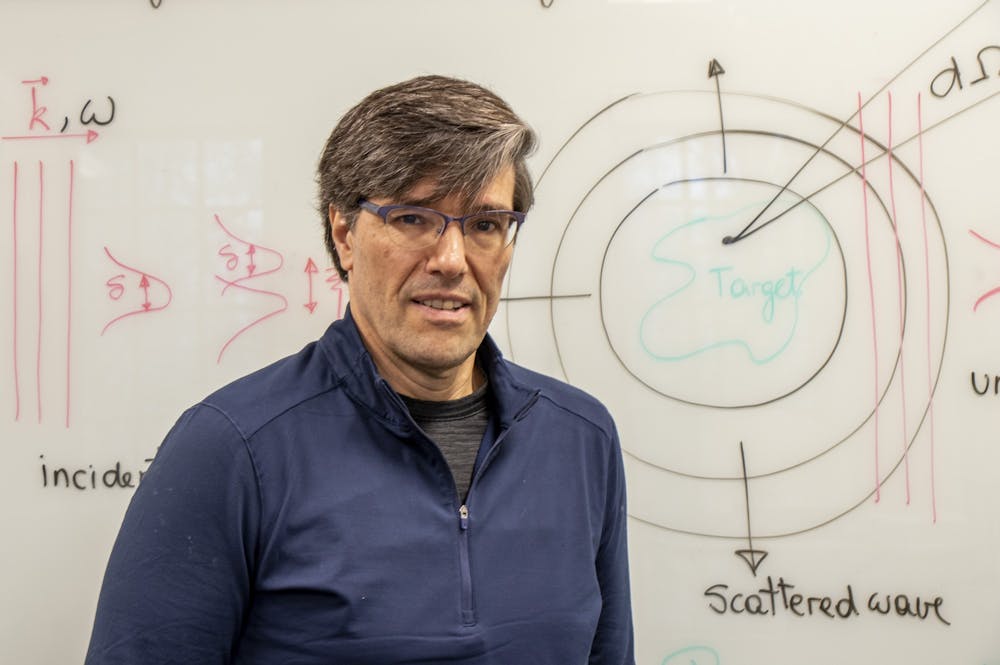IU’s Quantum Science and Engineering Center focuses on studying the possibilities of quantum theory, the center’s scientific director Gerardo Ortiz said. A team from the physics department got $3 million to go toward the new center from a research competition in 2018.
The center focuses on studying the possibilities of quantum theory, the center’s scientific director Gerardo Ortiz said. He said the center, located at IU's Center for the Exploration of Energy and Matter, will be at the forefront of quantum research and technology. The center is currently in the beginning stages, but Ortiz hopes it will become larger.
“This is the very beginning of something we hope to be very big one day,” Ortiz said.
Advancements in quantum sciences can affect every field from physics to philosophy, he said. He said the study of quantum mechanics and other fields of quantum research is important because quantum mechanics is the best mathematical framework that explains the nature of the universe we live in.
The 20th century brought an influx of quantum technology. This time period is known as the first Quantum Revolution and resulted in technology like X-ray, lasers, GPS and MRI.
The quantum research being done at IU showcases the possibilities that the current Second Quantum Revolution will bring, Ortiz said. The goal of this revolution is to manipulate the properties of quantum mechanics in order to create newer, more secure technologies in all fields, including secure communications and infrastructure, he said.
Support for quantum research swelled after Congress passed the National Quantum Initiative Act in December 2018.
Developing a quantum simulator is a large research project at the center, and a feature only IU is doing, Ortiz said. Studying quantum systems can be difficult because even the act of measuring these systems can change the way they behave. These simulators are important because they allow someone to create a simulation of a quantum system with its unique quantum properties while simultaneously controlling and changing aspects of the system.
Ortiz said doing quantum research requires a new way of thinking — it means changing the basis of what we know.
“We’ve been thinking logically, based on the classic thinking we’ve always relied on, but we need to think in a way that fits with quantum logic,” he said.
Individual projects in the center were funded in part by grants from the U.S. Department of Energy and the National Science Foundation. These agencies would also benefit from advancements in quantum fields, executive director and physics professor David Baxter said.
This center is going to create a lot of opportunities both for IU faculty and students to do research, Baxter said.
“We’re scientists,” Baxter said. “We want to be able to understand what’s happening in this emerging field.”




